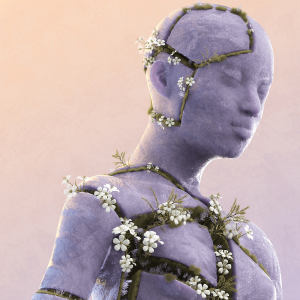
Sharon V. Betcher is an independent scholar, crip philosopher, and farmer living on Whidbey Island, Wash. She is the author of Spirit and the Politics of Disablement and Spirit and the Obligation of Social Flesh.
Posts By This Author
Embracing Our Fragility in the Presence of Affliction
Sharon V. Betcher on hope for souls and societies once the pandemic ends.
AS WE ENTER the second year of the pandemic, craving juices our throats. We just want to feel alive again: to hear spontaneous laughter and song; to lay our eyes on one another without the mediation of Zoom; to smell a grandchild’s neck without the filter of a mask; to brush against the crowd, breaching the numbness of isolation. We just want to get back to normal, we say. But normal, as science writer Ed Yong observes, is precisely what led to this. Even epidemiologist Michael Osterholm worries that we are “trying to get through this [pandemic] with a vaccine without truly exploring our soul.” Curiously, that puts the depths of soul on the public health agenda.
Insight therapy
COVID-19 has been an epiphany. It has given humanity a first comprehensive, planetary broad brush-up. The pandemic likely was set in motion through ecological disruption, when viruses were loosed from their wild hosts into human sociality, then proceeded to shatter along our nation’s habituated social fault lines—economic, racialized, gendered, and generational.
Every aspect of the coronavirus pandemic first exposed and then exacerbated the United States’ devastating inequalities, reports one investigative journalist after another. The biases of societal racism, classism, and sexism become, in turn, endemic to housing patterns, employment, and access to health care and healthy food. Compounded by the accumulated effects of environmental inequality, such biases become diseases of the body and its generations. Those we cheer on as “essential workers,” the U.S. has come to recognize, were often people whom it first dehumanized—people of color and women working in precarious scenarios of exposure and at low wages. As our planet heats up, each consequent emergency threatens to exacerbate the same fault lines.
While COVID-19 has turned out to be a far more cruciform epiphany than we might have desired, it has, if we are lucky, shaken our sense of invulnerability: Our well-being is entangled, one with another—from how we treat the environment to wearing masks and social distancing. Bodies aren’t born innocent, but from birth carry unequal burdens.
